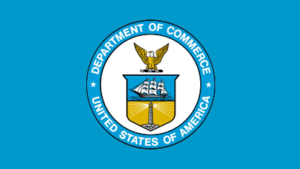
Only Contest a Will When Absolutely Necessary, California Elder Law Attorney Explains Why
Dec 23, 2010
Contesting a will is not easy, but may sometimes be necessary to preserve the proper distribution of an estate.
Hayward, CA (Law Firm Newswire) December 23, 2010 – A person may be able to contest their loved one’s will if the person has good reason to believe that it is invalid. Contesting a will is a process that is based on a person’s firm belief that something is wrong with his or her loved one’s will or in the manner in which it was signed or procured.
A person should not contest a will simply because he or she thinks the loved one made a distribution of which he or she does not approve. Rather, one must have valid grounds to make the contest. To begin with, a will is presumed valid if it appears valid on its face, i.e. contains the signature of the loved one and the requisite signatures of disinterested witnesses in accordance with state law. In order to challenge a will, the challenger has the burden of coming forward with legally valid evidence that would justify a court of law in setting the will aside. There are only certain circumstances that would warrant a court doing so:
If the person can prove that the person making the will (also known as the testator) was suffering from mental incapacity to the degree that he did not know that he was making a will and/or did not know the nature or extent of his assets, nor the identity of his family, one may be able to establish that he lacked the requisite mental capacity to make a will. Evidence in this regard may include medical records, witnesses who had interaction with the testator and, possibly, the opinion of a forensic psychiatrist.
If a person believes that another person applied undue pressure upon the testator to change the distribution made in a prior will and/or to disinherit someone who would be the natural object of his bounty, that circumstance may perhaps show undue influence, which is often another basis to challenge a will.
Fraud is another basis to contest the will. For example, if a person can prove that the testator signed the will document without knowing or realizing that it was actually a will, or that he was given misinformation that caused him to sign the will in its present form or to change the distribution plan of a prior will, one may be able to establish that he was fraudulently influenced.
Further, if a person can show that the will was not properly executed according to state law, this may furnish another basis to contest a will. Example: the testator did not sign in the presence of the required number of disinterested witnesses, or that the actual signing was not properly witnessed.
“If you believe that your situation is similar to any of the above circumstances, you may wish to contact an attorney immediately to help you file a claim to ensure the proper distribution of your loved one’s estate,” said Gene L Osofsky, an elder law and estate planning attorney with the Law Offices of Osofsky Osofsky, with experience in trust administration and estate planning. “Also, be mindful of time limits. Usually a will contest must be filed before the will is admitted to probate. Speed may therefore be essential.”
To learn more or to contact a Medi-Cal Planning Lawyer, California Elder Law Attorney, or California Elder Law Lawyer, visit http://www.lawyerforseniors.com.
Law Offices of Osofsky & Osofsky
1290 “B” Street, Suite 208
Hayward, CA 94541
Phone: (510) 247-2555



